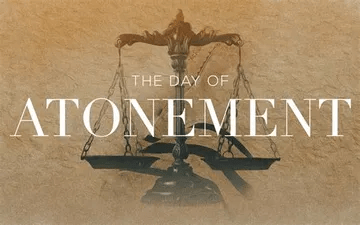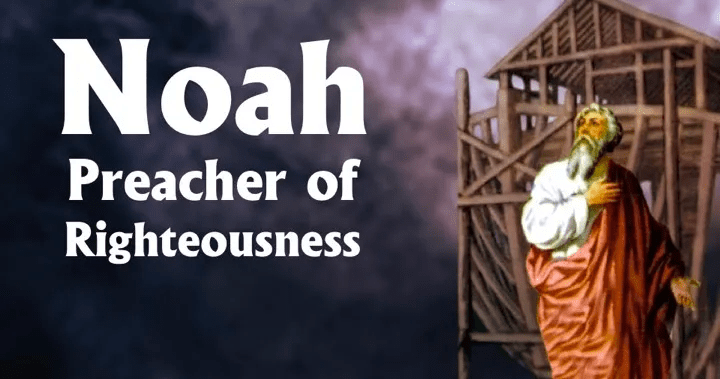“Do not think that I have come to abolish the Law or the Prophets; I have not come to abolish them but to fulfill them.”
[Matthew 5:17]
Do you remember the popular trend just a few decades ago — What would Jesus Do? (W.W.J.D.) Followers of Jesus of all ages wore bracelets and t-shirts with the W.W.J.D. acronym, as a reminder of the call to committed discipleship.
Although I appreciated that trend while it lasted and still commend any sentiment that encourages followers of Christ to a life of obedience, I would like to revisit that same question through a new pair of eyes and a greater understanding of God’s word.
So … What would Jesus Do?

If Jesus were walking the earth today, what would He be doing? How would He be living? What path would He be walking?
More importantly, can we honestly say that the overwhelming majority of Christians today are following the example of our Lord and Savior and walking in His ways?
Jesus Fulfilled the Law
“For truly, I say to you, until heaven and earth pass away, not an iota, not a dot, will pass from the Law until all is accomplished. 19Therefore whoever relaxes one of the least of these commandments and teaches others to do the same will be called least in the kingdom of heaven, but whoever does them and teaches them will be called great in the kingdom of heaven.”
[Matthew 5:18-19]

In my rediscovery of Torah, I now read my Bible and see Jesus through entirely different lenses. I no longer see a Messiah who came to abolish an old, broken system and subsequently create an entirely new religion. I no longer see a Messiah who came to set us free from the oppressive laws and burdensome commandments of God. I no longer see a Messiah who came to finally get rid of all those “Jewish” customs and replace them with the pagan traditions of the Gentiles.
I now see Jesus as the one who did not come to abolish God’s Torah but rather literally to embody and express the heart of God to the fullest possible extent.
I see Jesus as the One who came to set us free from the “curse” of the law [Galatians 3:10-14] — which is death — and then promises to give us His very own Spirit of freedom to walk in obedience to God’s law — which is righteousness and life [Galatians 5].
Unfortunately, there has been a gross misinterpretation of what Jesus meant by saying that He came not to abolish the law (Torah) but to fulfill. All my life I was taught that by fulfilling the law, Jesus somehow did away with the law once and for all and rendered the law obsolete. I was taught that because Jesus fulfilled the law, then the law was no longer applicable or beneficial to me as a follower of Jesus. I was taught that by fulfilling the law, Jesus liberated me from the law itself, and I no longer had to concern myself with all of those oppressive rules from the “Old” Testament.
This rank antinomianism has pervaded the Christian “church” and caused so much unnecessary confusion and error.
When Jesus says that He came to fulfill the law, He means that He is fullest expression of God’s Torah. He is the perfect example of keeping God’s commandments. He is the Only One who ever finished the race and crossed the finish line of life without sin by fulfilling perfect righteousness.
Therefore, Christ is the end goal of the law — meaning He is the standard — but that doesn’t mean He put an end to the law itself. He is the perfect example. He is the One we strive to be like. He is the One we focus on and follow if we want to live a life pleasing to the Father. Jesus is our flesh and blood demonstration of what it means to keep the Torah!
For Christ to fulfill the law DOES NOT MEAN that He put an end to the law! God forbid! He upholds the law. He promotes the keeping of the law. He is the one who expects His followers to walk in His ways and obey His commandments. Keeping the law was never the means to save the sinner, but it is the evidence that the sinner has been saved!
“Whoever has my commandments and keeps them, he it is who loves me. And he who loves me will be loved by my Father, and I will love him and manifest myself to him.”
[John 14:21]
Not only is this theologically undeniable but also logically self-evident.
Just stop and think about it …
If Jesus came to abolish the law so that His followers did not have to keep the commandments anymore, then that would mean that we are free to ignore and break His commandments.
No law! No problem!
Jesus has us covered. It’s all grace! Do what you want. He doesn’t care. Finally! No more rules!
Let’s just start with the 10 Commandments themselves.
Wanna murder? No big deal.
Commit adultery and lie? It’s ok … Jesus got rid of all those oppressive rules.
Dishonor your parents and start worshipping idols? Yep. No worries. All that Old Testament stuff has been abolished by Jesus!
Forgive the sarcasm, but I needed to make my point.
It is altogether absurd to suggest that Jesus came to abolish the law and get rid of God’s commandments. Of course that’s not true!
But because of gross misinterpretations, the “church” has propagated and perpetuated error for generations without taking the time to follow such teachings to their logical and absurd conclusions.
Now I realize that most Christians would at least still affirm the 10 Commandments (well except number 4) and cherry pick and choose a few other “moral” laws from the Old Testament, but beyond that most Christians practically are averse to God’s Torah.
“All the rest of that old stuff is only for the Jews,” they say. “We are the Gentile church,” they say.
But wait a minute, aren’t we trying to answer the simple question … What would Jesus do?
Was Jesus a Gentile or a Jew?
Did Jesus abandoned the Torah and teach His Gentile followers to do the same?
Or did Jesus expect all of His disciples, Jew or Gentile, to align themselves with His ways and His teachings and His commandments?
What Would Jesus Do?
“But if you had known what this means, ‘I desire mercy and not sacrifice,’ you would not have condemned the guiltless. 8For the Son of Man is Lord even of the Sabbath.”
[Matthew 12:7-8]
Any committed follower of Jesus Christ should stop to consider just what it means to live as Jesus lived. If Jesus is the fullest expression of God’s Torah and our perfect example of righteousness, then should we not simply just want to live as He lived, walk as He walked, and do what He did?
Now I would like assume that most committed followers of Jesus are doing pretty good at keeping the obvious commandments. Surely we understand that if we love our neighbor we should not murder, lie, steal, and commit adultery.
But beyond keeping the obvious commandments, what else would Jesus do if He were alive on the earth today?
Jesus was Circumcised on the 8th Day — Genesis 17:1-14
As a male descendant of Abraham and a member of the covenant community of Israel, Jesus was circumcised according to the Torah. The sign of circumcision was first given to Abraham and eventually confirmed with the children of Israel.
For Gentiles, circumcision has never been a condition for salvation, as Paul and the Jerusalem council clearly taught (Acts 15 and Romans 4). However, once a person trusts the Lord Jesus by faith and is grafted into the covenant community of Israel, then circumcision is an act of obedience much like baptism.
Jesus kept the Sabbath Holy — Genesis 2:1-3, Exodus 20:8-11
Jesus would rest from ordinary work every 7th Day of the week — which is Saturday not Sunday — and gather with other believers to pray, read the Bible, sing praises to God and break bread in fellowship. Jesus never broke the Sabbath and never commanded His disciples to break the Sabbath. We are never told anywhere in the New Testament that God has done away with the Sabbath or that God’s people were supposed to change the Sabbath from Saturday to Sunday.
I find it bizarre and logically inconsistent that most Christians have no problem with the other nine commandments, but for some reason we have completely stripped out the 4th Commandment and removed it from God’s tablets of stone. Not only was Sabbath established at the very beginning of creation, but God’s covenant people will be keeping Sabbath in the coming Messianic Age.
Jesus kept the Dietary Laws, eating only animals that God determined to be food — Leviticus 11, Deuteronomy 14
The Creator has determined what is considered to be food and what is not to be consumed as food. Jesus would never have eaten any animal that was not clean, according to Torah. Once again, the dietary laws, contrary to popular opinion, have never bee abrogated or abolished. In other words, if God the Creator has determined an animal unclean as food, then that animal still is not food in God’s sight and should not be consumed.
Jesus kept the Appointed Feasts of the LORD — Leviticus 23
We are given multiple examples of both Jesus and His Apostles observing the appointed feasts of the LORD, as prescribed in the Torah. These divine appointments were established by God as a blessing for His covenant people to celebrate and rejoice and remember His goodness, mercy and love.
The appointed feasts were given as statutes to be observed forever, throughout all generations, not to mention the fact that Jesus’s work of redemption itself was accomplished on these appointed feast days to the very last detail.
Of course, there are many other laws that Jesus would have kept as well, but that is beyond the scope of this post.
My point is simply this. If we claim to be followers of Jesus Christ and desire to be like Him as much as possible and walk in His ways and walk in obedience to His commandments, then are we willing to set aside the traditions of men and truly do the things that Jesus did?












